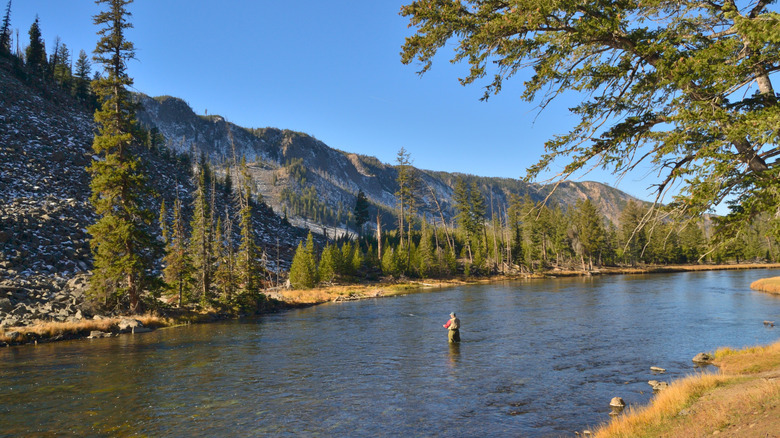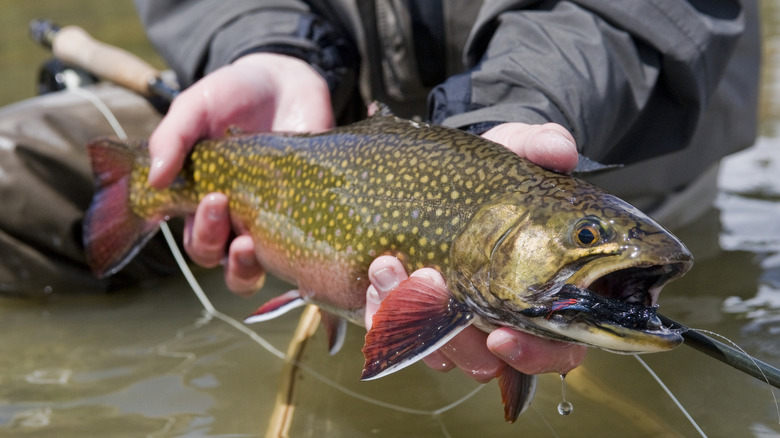One National Park Has Closed Several Popular Rivers To Fishing Due To Warm, Shallow Waters Endangering Fish
As of July 12th, Yellowstone National Park has enacted a temporary fishing ban on several of its rivers and streams. Unfortunately, rising water temperatures in the park due to climate change are putting native fish species — especially trout — at risk, with water temperatures reaching 68 degrees Fahrenheit. As such, park officials have closed key fishing areas until further notice in order to protect these vulnerable fish populations facing not only the warming of waters, but also a decrease in the water's flow and depth.
Yellowstone is a very popular fishing destination known for its abundance of wild trout, diverse waterways, family-friendly waterfall trails, and stunning scenery — all of which attracts thousands of anglers from all over the country. But current conditions at the Madison, Firehole, and Gibbon rivers have led to their closure until the water temperature lowers and the flow increases. It's important to note that this phenomenon happened in the summer of 2024 as well, and with climate change intensifying every year, these kinds of incidents are likely to become more frequent.
For those planning a summer fishing trip to Yellowstone, this news may be disappointing. Yet, some locations such as Yellowstone Lake still remain open. Regardless, rescheduling your trip for the fall — one of the best times of year to visit Yellowstone — might be a good idea. Park officials will be continuously monitoring the situation going forward, and cooler air temperatures and increased rainfall are likely to return in the autumn.
Rivers and streams in Yellowstone temporarily under a fishing ban
On June 18, some rivers were closed only between 2:00 p.m. and sunrise — similar to what happened in 2024. However, as of July 12, these same rivers are now totally off limits to fishing. The Madison River falls under the fishing ban along with its tributaries. The same applies to the Firehole River and its respective tributaries. A third river, the Gibbon River, has also suspended fishing. However, the ban on its tributaries applies only to those downstream of Norris Campground located 50 minutes from Gardiner in Montana — where America's scenic Route 89 crosses into Yellowstone.
Any other river or stream not listed on the park's website remains open as of this writing, as well as all lakes, including the popular Yellowstone Lake, from sunrise to sunset. Still, if you choose to fish in these areas, please follow the park's instructions for a safe and ethical fishing experience. According the National Parks Service, anglers should only fish during cooler hours of the day and quickly land the fish. Also, as per Yellowstone's Fishing Regulations, all native species must be released, with further regulations as follows: "Do not play hooked trout to exhaustion. Gently handle fish in the water as much as possible and let them recover before release."

